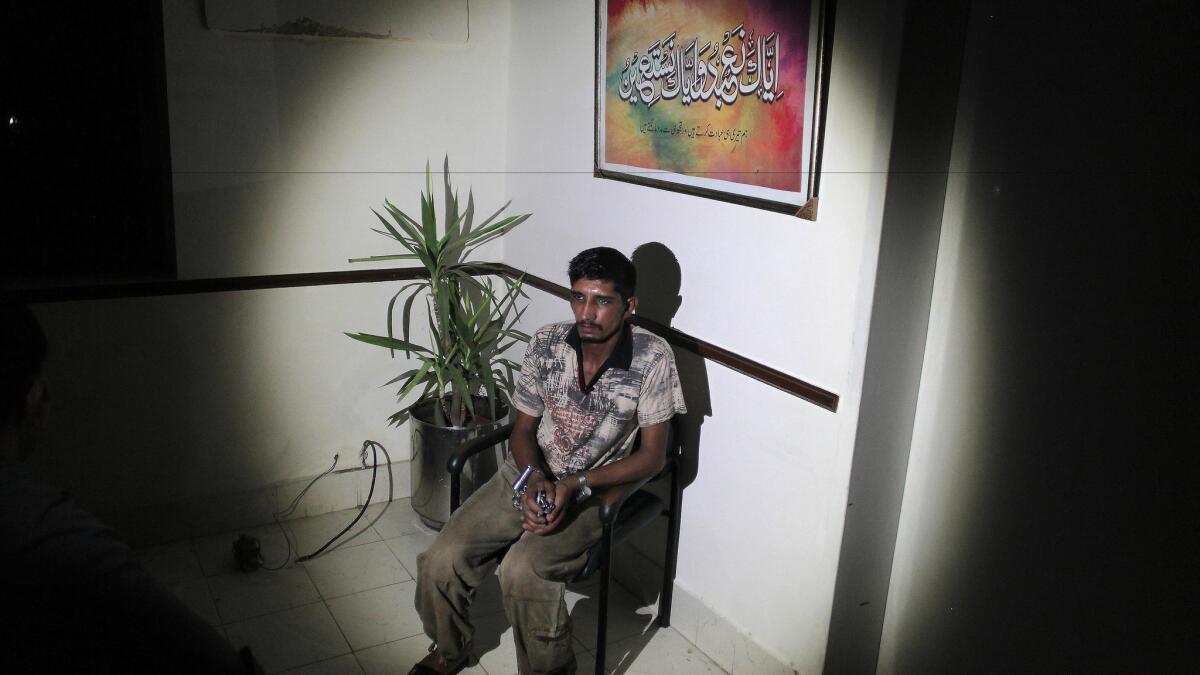Pakistan sets mininum sentence of 25 years in prison for those convicted of ‘honor’ killings

- Share via
Reporting from Islamabad, Pakistan — The Pakistani parliament Thursday unanimously approved a law that toughens punishment for so-called honor killings and makes it more difficult for those convicted to go free.
The new law mandates a minimum sentence of 25 years in prison for anyone convicted of killing for honor. Thousands of women are believed to die in such killings every year in Pakistan.
Crucially, say women’s rights advocates, the law closes a loophole that allowed convicts to escape sentences if family members of their victims agreed to forgive them.
Under Pakistan’s Islamic laws, relatives of a murder victim can forgive a killer, effectively commuting the jail sentence. Human rights groups have long called for treating honor killings differently because in nearly all cases, the killers are close family members who usually are forgiven.
The new law allows for a family to forgive a convicted killer only if the person is sentenced to death; in that case the convict would still have to serve the minimum sentence.
Many of Pakistan’s honor killings take place when a male relative kills a woman who is believed to have brought shame upon the family, often by marrying a man of her choosing.
The Human Rights Commission of Pakistan counted nearly 500 honor killings in 2015. Rights groups say that the real number is much higher, particularly in conservative areas where perpetrators are not charged.
“I cannot recall in my professional life that a killer in an honor killing case was punished,” said Nasira Javed Iqbal, a retired judge and human rights activist.
While legislation alone would likely not eradicate the practice, Iqbal called the new law a good step.
“The state needs to take ownership of these killings,” Iqbal said.
The issue gained greater prominence with the success of “A Girl in the River: The Price of Forgiveness,” a documentary by Pakistani filmmaker Sharmeen Obaid-Chinoy that won an Academy Award in February.
The film traced the story of a Pakistani teenage girl who was pressured to forgive her father after he shot her in the head for marrying a man he didn’t approve of.
Prime Minister Nawaz Sharif screened the film at his official residence and pledged tougher action against honor killings.
“Thank you to PM Nawaz Sharif for keeping his promise,” Obaid-Chinoy tweeted.
The opposition Pakistan People’s Party brought the bill before parliament, but months passed before it came to a vote as lawmakers sought to gain the support of Islamist parties. The law passed after the provision allowing forgiveness in capital cases was inserted.
The parliament also passed a law requiring a minimum 25-year sentence for rape convictions.
Sahi is a special correspondent. Times staff writer Bengali reported from Mumbai, India.
ALSO
U.K. Independence lawmaker hospitalized after clash with colleagues
Many in China see the U.S. as a greater threat than Islamic State, new report says
UPDATES:
11:00 a.m.: This article was updated throughout with Times reporting.
This article was originally published at 7:55 a.m.
More to Read
Sign up for Essential California
The most important California stories and recommendations in your inbox every morning.
You may occasionally receive promotional content from the Los Angeles Times.











